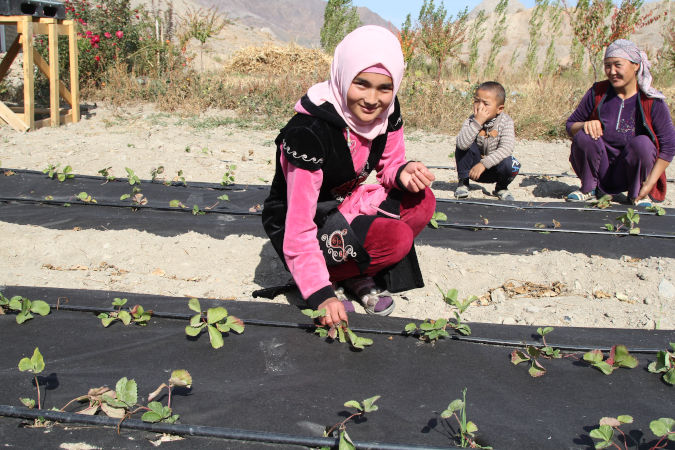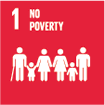From where I stand: “Expanding economic opportunities of women is key to ensure safety and prosperity”
24-year-old Kursanali kyzy Begimai is the leader of a self-help group in a village on the disputed Kyrgyzstan-Tajikistan border. Running a profitable agro-business and conflict-resolution initiatives, her group is now an example to other community members in the villageDate:

“Together with my self-help group “Yrysky” [means ‘Bountifulness’ in Kyrgyz], we work on planting remontant strawberries called “Albion” that yields three to four times a year. We’re among the first ones who started planting this type of strawberry, not only in our village, but also in our region. There are five women in my self-help group. We’re mothers under 30 years old and most of our husbands are labour migrants in Russia, while we stay home with our children.
We have planted more than 1,000 “Albion” strawberry plants and have installed a drip irrigation system. We have received consultation and attended a training on how to plant and look after strawberries. Our work is an achievement and source of joy not only for us, self-help group members, but also for our neighbors in the village. Following our example, others in the village also plan to cultivate this type of strawberry and purchase seeds from us.
Living on the cross-border area, we face various conflicts, mainly caused by the absence of demarcation on the border. There are many disputes caused by limited access to natural resources, such as land and water, that increases tension.
I, like many other women, was not confident and a bit shy at first. I remember when I was presenting our self-help group plan for a small-scale initiative to the Selection Committee [that evaluated the plans that would be supported within the UN Women project], comprising of UN Women project staff and members of the local self-government. I couldn’t formulate complete sentences and didn’t look into the eye of the audience. I was very nervous. Nevertheless, the Selection Committee positively assessed the plan of our initiative and recommended for support, that resulted in providing not only agriculture equipment, strawberry plants and fertilizers, but also trainings and consultations.
Thanks to the UN Women project “Cross-border cooperation for sustainable peace and development”, I attended various trainings and events both on community and province level, and I became more active. I have learned different ways of conflict resolution, women’s role in peace-building, and the importance of rational use of natural resources through attending trainings on green entrepreneurship.
As for our work within the self-help group, we shall receive the first yield of strawberries in April in a volume of 3 tons. If we sell at least 2,500 kg of the harvest for 120 KGS [approximately 2 USD] per kilo, we shall collect 300,000 KGS [4,300 USD] for the first yield. We will equally share this among each other, with 60,000 KGS per person [860 USD].
Expanding economic opportunities of women is one of the key factors to ensure safety and prosperity. We now want to expand our professional network, improve management and business planning skills through arranging study tours to workshops in Tajikistan, that work on strawberry cultivation.”
UN Women Kyrgyzstan supported Kursanali kyzy Begimai’s small-scale agricultural business initiative within the joint project “Cross-border cooperation for sustainable peace and development”, funded by the UN Peacebuilding Fund, implemented with WFP, UNDP, FAO and UNICEF. Kursanali kyzy Begimai and her self-help group’s work contributes to Sustainable Development Goal (SDG) 1, which aims to ensure that all women and men have equal rights to economic resources and SDG 5 on achieving gender equality and empowerment of all women and girls.
